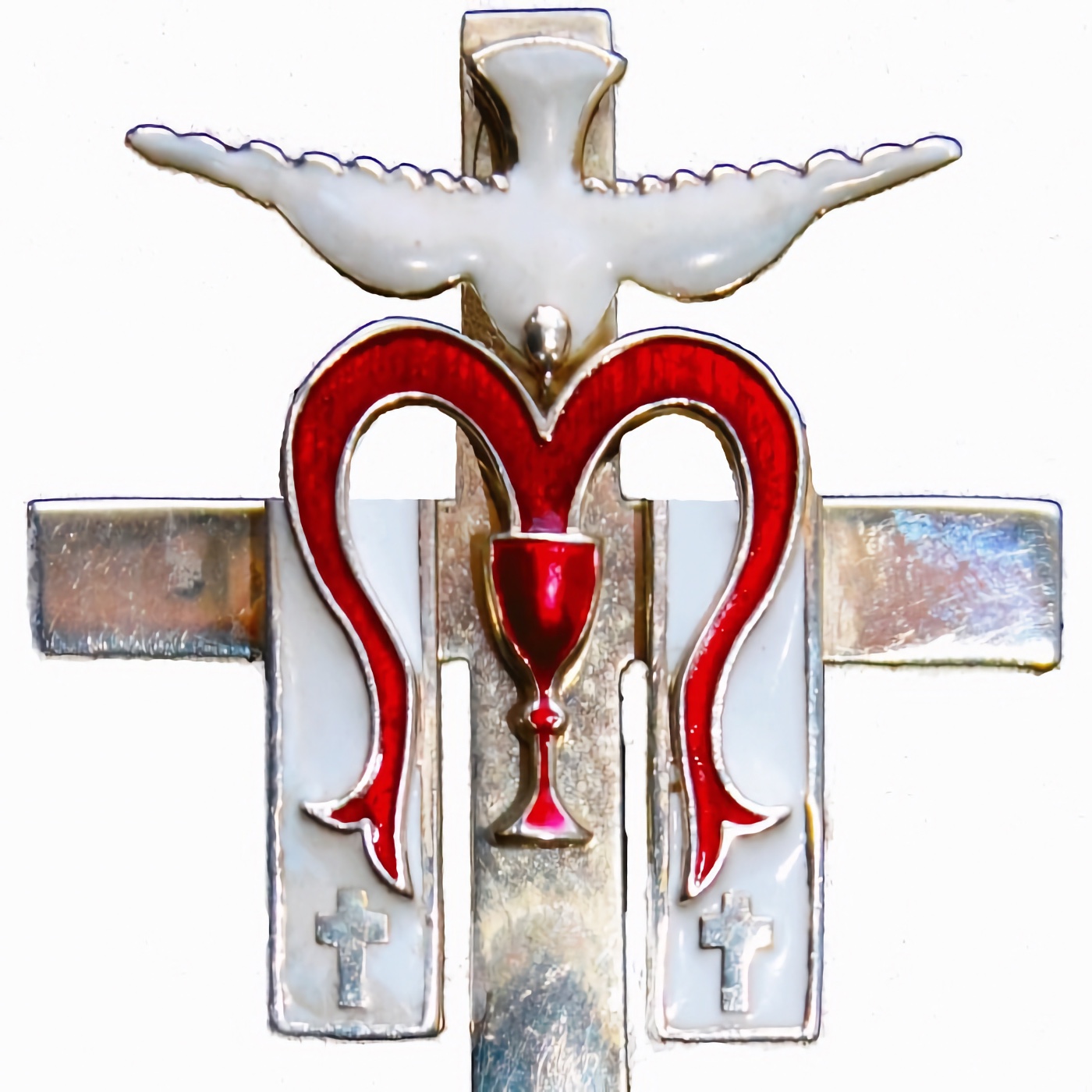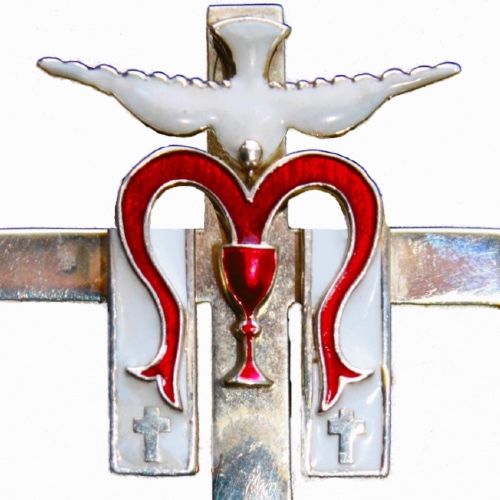Trust Inspired by the Annunciation
The Annunciation teaches us about how God relates with us and what trusting Him really means.
God, who is almighty and all-knowing, the creator of the universe, asks Mary to participate in His most important plan: the salvation of the world. Then He waits for her permission! We see God asking and waiting throughout the history of salvation. With the few who respond, He does great things. This is God’s way with us. He asks permission to come to us and to work through us.
Trust depends on our faith that God is asking us permission to work in and through us.
But it also means that we are attentive to give Him that permission when it goes against what we expected and desired.
God’s work in us often is often very different than what we expected.
It is not enough to want God just as a benefactor, to do our bidding, to give us all the good things we want. Then we pray that all goes as we expect and say we trust that God will come through. That means that if a loved one is sick, they will heal; if I’m looking for a job, a dream house, etc., it will come through as I expect it. Then we can say, “God is good, I trust He will give it to me”!!
But do I also pray giving God permission to contradicts my expectations, for the grace to embrace with confidence His will, trusting that it is the best? That is what Jesus did at Gethsemane. He showed us the price of trusting in the Father and why few do.
This means that It is not enough to obey the Commandments. That is to live by the law. Christ has given us His Holy Spirit so that we see, desire, and act as one with His heart. That means that God wants a personal relationship with us and wants to direct all the decisions we take, including those of our daily life.
The Lord wants to give us His plans, His desires, His love.
We are tempted with spiritual laziness
I may think that if God wants something from me, He can just tell me, and I will do it.
Trusting in God requires the hard work of discerning God’s will for us. We cannot presume we know it. It may be that at times the Lord will come to us in a striking way, as the angel speaking to Mary. But even Mary had to struggle. Lc 1, 26 “she was greatly troubled at the saying, and considered in her mind what sort of greeting this might be.” The angel had to tell her, “do not be afraid”. Mary did not understand and asked questions: Lc 1, 34 “How shall this be, since I have no husband?” Then Luke tells us that “the angel departed from her.” To trust, Mary needed to continue to listen to God, now speaking in the silent movements of the Spirit in her heart. She heard from the angel that Elizabeth was with child but no further instructions in that regard. But in her heart, she listened to the Spirit moving her to do the most difficult, the most dangerous” to go serve. She trusted because her love consumed her, and she was attentive to the Lord, no attachments, no distractions could interfere.
The disciples sincerely trusted Jesus; they left everything to follow Him. But their trust had to grow. Jesus lamented that they were slow to understand the signs meant to teach them to trust in what seemed impossible or what went against their natural hopes. Only later they realized the power of the cross and that they had not yet abandoned everything as they thought. They were still thinking as natural men think and not as God thinks. We, too, need to have our minds opened to know the will of God.
If our priority is not to listen to God, if we do not expect Him to actually speak, if we do not keep at it in prayer, seeking and waiting upon the Lord, then we will be distracted and guided by other voices.
At the Last Judgement, the damned will ask, “when did we see you hungry…” They did not respond to God because they did not see Him in the way they expected.
When we die, I think that we will be dismayed to see how much God wanted to entrust to us, how much He wanted to draw us to His heart, but we just did not see it. We thought we were trusting, but we failed to seek with all our hearts His will. The result is that our understanding of the will of God was distorted; we justified our way of thinking and our lifestyle.
If our understanding of God’s will is distorted, then our trust is distorted.
In the gospel story of the rich man and Lazarus. The rich man goes to hell, not for doing something bad to Lazarus but simply for ignoring him in his great need.
We, too, can interpret the gospel blinded by our own mindset.
One sign that we are off track is when we justify our actions saying, “there is nothing wrong with this.”
Nothing wrong with my spending my money, my time, my thoughts this way. Instead, we need to ask the Lord, “What do YOU want? Is this the BEST way you want me to spend it?” Then we will see that God’s way is giving.
Responding to God in trust requires a decision to enter into battle against our own tendencies, which are still driven by our flesh and our wounds. This often means to do what is most difficult because we love and trust God. We need to allow God to plow and pierce our hearts to make them new.
The Lord wants to give us a transformed mind that has authority over our flesh.
Rom 12:1-2. I appeal to you, therefore, brethren, by the mercies of God, to present your bodies as a living sacrifice, holy and acceptable to God, which is your spiritual worship. Do not be conformed to this world but be transformed by the renewal of your mind, that you may prove what the will of God is, what is good and acceptable and perfect.
At times we are tempted to run from God’s will and pretend we are not covering up our scape with pious excuses. We can easily fool ourselves. That is why we need the Church’s teaching and someone who can help us see our blind areas. This is accompaniment and constant seeking of self-knowledge. To see our true motivation
Saint Ignatius desired to respond to God so much that God gave Him a process of discernment called the Spiritual Exercises. He had to seek God and engage in intense spiritual warfare against Satan and the flesh to come to clarity about the will of God.
This is the work of the Path. This calls for a disciplined way of life.
Another temptation is to overlook the power of our ordinary lives in the will of God.
We may excuse ourselves from the effort of listening to God, thinking that our vocation is not as important as Mary’s. The truth is that Jesus is asking us to respond like Mary, to partake of His love as co-redeemers, to save many through the power of our hidden lives united as ONE with His! That is why He pleads, “give me victim souls”. The creator of the universe begs each of us for help to bring His love and salvation to many!
Image: Annunciation by Emilio Falero, at Love Crucified Community.

